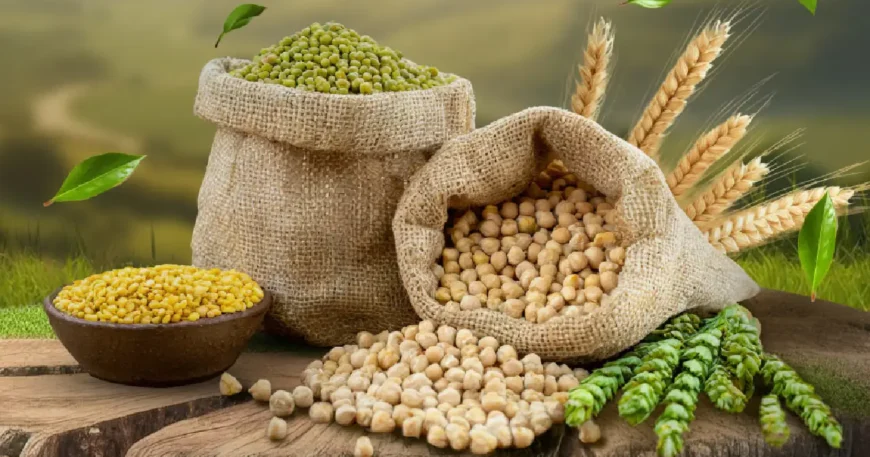
What is Organic Food?
Organic food refers to food products made from ingredients grown and processed without artificial chemicals like synthetic fertilizers and pesticides, as well as genetically modified organisms (GMOs). The focus of organic farming includes:
- Environmental Health: Practices that support and protect ecosystems.
- Biodiversity: Encouraging a variety of plants and animals.
- Sustainability: Ensuring long-term farming practices that don’t harm the environment.
Why Choose Organic?
People choose organic food for several key reasons:
- Health Benefits: Many believe organic foods are healthier since they are free from harmful chemicals.
- Environmental Concerns: Organic farming is often more sustainable and protects the environment.
- Taste: Some consumers feel that organic produce tastes fresher and better.
Regulations and Certification
In many countries, including the U.S. and EU, organic foods must meet strict guidelines:
- Certification: Foods labeled as organic must be certified by authorized organizations.
- Restrictions: Regulations limit the use of synthetic substances in farming.
- Animal Welfare: Animals must be raised without the use of antibiotics or growth hormones.
History of Organic Food
- Early 20th Century: The popularity of organic farming grew as a response to industrial farming.
- 1940s: The term “organic” was first coined to describe ecologically balanced farming methods.
- 1970s: Interest surged as environmental awareness increased.
Production Process
Organic farming focuses on:
- Natural Fertilizers: Using compost and manure instead of chemical fertilizers.
- Crop Rotation: Planting different crops in succession to keep soil healthy.
- Natural Pest Control: Avoiding synthetic pesticides by using natural methods to control pests.
Organic vs. Conventional Food
Organic Foods:
- No synthetic pesticides, hormones, or GMOs.
- Often fresher and can be more expensive.
Conventional Foods:
- May contain synthetic chemicals and methods.
- Usually longer shelf life and lower prices.
Organic Food Labeling
In the U.S., organic food labeling categories include:
- 100% Organic: All ingredients are organic (may bear the USDA seal).
- Organic: At least 95% of ingredients are organic.
- Made With Organic Ingredients: Contains at least 70% organic ingredients.
- Less Than 70% Organic Ingredients: A few organic ingredients listed in the ingredients section.
(Note: “Natural” or “all natural” does not mean the food is organic!)
Environmental Sustainability of Organic Farming
- Conventional farming practices can harm ecosystems and biodiversity.
- Organic farming typically reduces some environmental impacts, although its effectiveness varies.
- Some studies indicate lower greenhouse gas emissions from organic plant-based foods compared to conventional methods, but impacts from meat production are similar.
Health and Safety of Organic Food
- There is limited scientific evidence to prove health benefits from organic food consumption.
- Comprehensive long-term studies comparing organic and conventional diets are lacking.
- Some studies show adverse effects of pesticides on children’s development.
Consumer Safety in Organic Food
Pesticide Exposure:
- Organic foods generally have lower pesticide residues.
- Chronic exposure to low levels of pesticides is still an area of concern.
Microbiological Contamination:
- Organic farming sometimes uses manure, which raises contamination fears. However, outbreaks linked to organic practices are relatively rare.
Public Perception of Organic Foods
Many believe organic food is safer and more nutritious, influenced by:
- Health Concerns: Worries about conventional farming.
- Taste Perception: Belief that organic tastes better, although this isn’t always supported by tests.
Demographic Influences on Organic Food Consumption
Factors influencing organic food purchases include:
- Education & Income: Higher education and income levels correlate with increased organic purchases.
- Age & Gender: Women and younger adults tend to buy organic more than other groups.
- Religious Beliefs: Moderately religious individuals often purchase more organic foods.
The Rise of Organic Food Demand
- Food Safety Concerns: Incidents of contamination in conventional food have increased the demand for organic options, especially in China.
- Processed Organic Foods: There is growing interest in processed organic options perceived as healthier.
In conclusion, organic food represents a significant lifestyle choice for many people, driven by health, environmental, and taste considerations. As the demand for organic products continues to grow, they are more accessible in mainstream markets.












